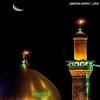
Ahlul Bayt News Agency - Itsumo Okada, famous Japanese novelist and journalist, known for his great literary works and words derived from his previous environment where he lived in El-Hureya Eth-Thaneya area, Baghdad. He speaks the Iraqi accent; he wrote three novels in Japanese singing Iraq’s praises; one of his novels titled, “El-Hureya Eth-Thaneya Area,” second one titled, “Mesopotamia,” and third one titled, “Baghdad in the Past and in the Present”.
In an interview with Okada, he said:
We’ll illustrate images of creativeness towards the most significant events that are filled with human principles.
Q/ Can Mr. Okada tell us about himself?
Okada: I’m a Japanese novelist and journalist. I was born in Tokyo, Japan. I’m 70 years old, and I have a wife and 3 children. I’m Buddhist but I’m interested in Islam. I graduated from the University of Osaka - Arabic Department. I moved to Baghdad in 1983, and settled down in El-Hureya Eth-Thaneya area. I worked as a translator at Baghdad General Hospital. After that, I moved to Najaf city where I was appointed as a director of Najaf Hospital. I also worked in Karbala and Basra city, and the whole period of time I spent in Iraq was 5 years. Since then I moved to Tokyo, Japan.
Q/ You have worked in the scope of Journalism, and you’re skillful at writing novels, where do you find yourself today?
Okada: I think I love both of Journalism and writing novels, but writing novels feels more convenient to me where I can describe more things, create more details, connect events to each other, find solutions to figures and control them in order to reflect all the details can be realistically experienced. Therefore, in novels, I have more control over a default world which I can control its features however I desire.
Q/ What do you think of the literary field in Iraq?
Okada: I found it increasingly advancing which is inversely proportional to the stage of security conflict that the Iraqi people are, nowadays, confronting. And in terms of that conflict, I hope that more educational and cultural events will be conducted in order to exert all the literary, cultural, political and military efforts to present the best image of Iraq. Accordingly, I have written essays about Iraq, Iraqi culture, and Islam.
Q/ What is the secret behind your love to Imam Hussein (Peace Be Upon Him)?
Okada: Since I moved to Iraq, I heard of the story of Imam Hussein (Peace Be Upon Him) and how he was martyred. Imam Hussein is a great figure that I love and highly respect due to his defense and commitment to his religion and belief. He sacrificed every valuable thing – his sons, his family, and his companions – and then was martyred to be the role model who faithfully stood against injustice and tyranny. Therefore, all religions and beliefs should take the lesson from this unique and courageous Imam in order to remove all kinds of terrorist organizations. I also hope that those who make pilgrimage to Imam Hussein (Peace Be Upon Him) should maintain their human-oriented religious shouts, especially those repeated in the millionth pilgrimages such as Arba’een pilgrimage where millions of people come to make pilgrimage to Imam Hussein (Peace Be Upon Him) from every corner of the world.
Q/ As long as Japan is interested in cultures and beliefs, what is Iraq to Japan?
Okada: Japanese people are very interested in Iraq’s affairs and Islam, because Islam is the prominent element that maintains the continuation of the bright historical Mesopotamian civilization. Therefore, Japanese people rank Iraq first in terms of culture and civilization, and this is what I have realized especially through the conference on the grand Muslim Shia scholar Waheed El-Bahbahani, who made important changes and whose effects are still experienced.
source : abna













